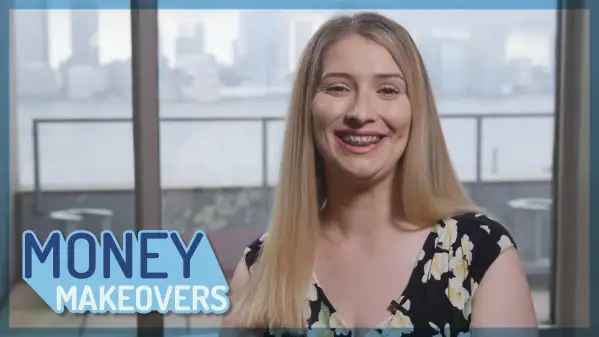I Paid Off $14,000 in Debt in Just 8 Months. Here’s My Best Piece of Advice for Anyone Wanting to Do the Same

This is the fourth installment of Money Makeovers, a series where we put together a financial plan for people in terrifying financial situations. Follow us on YouTube to receive a notification when new episodes are published.
Not long ago I found myself in need of a huge money makeover.
I was in almost $20,000 worth of debt, being sued by two of my credit cards, and had only a few hundred dollars to my name.
The legal notices were piling up. I got served papers to my doorstep — much to the horror of my roommate — and it became clear that if I didn’t start paying back my debt, the credit card companies were going to start paying themselves through wage garnishments.
It was time to stop ignoring the pile of collection notices that had gone unopened for two years and take control of this dark cloud looming over my life.
Over the last eight months, I’ve paid off $14,000 worth of debt and almost tripled my income, transforming my questionable money habits in the process.
Like many people tackling a financial nightmare, I was dealing with a lot of frustration, embarrassment, and anxiety. This meant I had to get (and stay) focused on the idea that I actually could climb out of my mess. As famed sales speaker Zig Ziglar once said, “People often say motivation doesn’t last. Neither does bathing — that’s why we recommend it daily.”
I needed sources of money motivation that could keep my head in the game — and I found them. Here's what I used to replenish my positivity along the way to paying off my debt.
I hit the books
You might have heard of it and maybe already read it, but Jen Sincero’s instant classic self-help book, You Are a Badass at Making Money was made for a money-minded millennial like me who was dreaming of a more secure future.
This book landed in my lap after I confided in a friend that I was in over my head and wallowing in money misery. She said that Sincero’s book helped her get back on track after a divorce ravaged her finances.
What I found between the pages was a much-needed pep talk that reminded me, “You can have excuses, or you can have success; you can’t have both.” I realized maybe nothing about money felt good for me because I kept telling myself I was bad at managing it. That messaging had to change.
As I completed the journaling exercises at the end of each chapter, I came face-to-face with my own self-sabotaging and fearful attitudes about money. But after naming them, I could begin to unravel them.
Sincero’s premise that changing your mindset will change your world isn't unique to her, but it’s still true. Her book encouraged me to build a better framework for how I thought about my potential to make money and use it for good.
I found motivation in music
A book wasn't my only source of wisdom; there was inspiration hiding in music, too. The song, “Fill Another Safe” by the rapper Curren$y contains two lines that became my mantra when tackling my debt: “We’ve got money put away, we’ve got more money on the way.”
For a long time, neither of those sentiments felt true, but I began working to change that. When it felt like I’d never make a dent in my debt or that I’d be making minimum wage for the rest of my life, I repeated the words of this song to myself.
Then I actually saw results. A tiny savings account was taking root, and I could begin to imagine the eventual elimination of my credit card debt. I became more obsessed with the message of the song.
In fact, I even added those lines to the notes section whenever I’d transfer money online into my savings account. I DID have money put away! There IS more money on the way! However silly it sounds, it inspired me to keep building security. It kept me hopeful, thinking that maybe one day I’d be a multitalented business owner like Curren$y, stacking paper off of everything from sneakers to burgers.
Subscribe to Money on YouTube for more Money Makeovers.
I discovered a podcasting mentor
Jen Sincero’s book helped get my brain on track while Curren$y reminded me to trust the process, but what I really needed was the advice of a wise, experienced person to help me take some real financial action.
I found that in Jean Chatzky, the financial editor for NBC’s Today Show and host of the HerMoney podcast. Instead of spending my morning commutes scrolling social media, I’d hit play on one of these episodes. Chatzky’s interviews and advice always left me feeling a little smarter by the time my subway ride came to an end.
I heard myself in a lot of the guests she featured, especially those that admitted they were “bad with money,” too. Chatzky's approach of relaying financial advice in a more gentle and less accusatory way (at odds with some other popular financial experts), made her podcast become a favorite and positive way to start my day.
I kept the spirit alive
I never thought I’d be able to pay off as much debt in as little time as I did, and at times it felt like I’d never find stability again. Thankfully, that proved not to be true.
Journaling, listening to music, and learning from those who have been there before gave me the support I needed. There are a million other ways to find similar kinds of motivation, and it doesn’t matter which route you choose. The most important thing is to find one that keeps your fire lit when things start to feel dark — and I'll see you on the other side of your debt-free journey.